- Home
- H. P. Lovecraft
The Lurker at the Threshold Page 3
The Lurker at the Threshold Read online
Page 3
In addition to these interesting notes, there were diagrams of what seemed to be very odd operations, the nature of which I did not fully comprehend at that time. These were apparently copied out of ancient texts, particularly one given frequently as source entitled De Vermis Mysteriis, by Ludvig Prinn, another of those obscure references completely foreign to me. The operations themselves suggested a raison d’etre too astounding to accept on face; one of them, for instance, was designed to stretch the skin, consisting of many incisions made to “permit growth.” Yet another was a simple cross-incision made at the base of the spine for the purpose of “extension of the tailbone.” What these fantastic diagrams suggested was too horrible to contemplate, yet it was part and parcel, surely, of the strange research conducted for so many years by Dr. Charriere, whose seclusion was thus readily explicable, since his was a project which could only be conducted in secret lest it bring down upon him the scorn and laughter of his fellow scientists.
Among these papers there were also certain references set down in such a manner that I could not doubt they were the experiences of the narrator. Yet, for all that these antedated 1850, in some cases by decades, they were unmistakably in Dr. Charriere’s handwriting, so that—excepting always the possibility that he had transcribed the experiences of someone else—it was evident that he was more than an octogenarian at the time of his death, indeed, far more, so much more that the very anticipation of it made me uneasy, and cast my thoughts back to that other Dr. Charriere who had gone before him.
The sum total of Dr. Charriere’s credo amounted to a strongly hypothetical conviction that a human being could, by means of certain operations, together with other unusual practices of a macabre nature, take upon himself something of the longevity that characterized the sauria; that as much as a century and a half, perhaps even two centuries, could be added to a man’s life span; and, beyond that, given a period of semiconscious torpor in some moist place, which would amount to a kind of gestation, the individual could emerge again, somewhat altered in aspect, true, to begin another lengthy span of life, which would, by virtue of the physiological changes which had taken place in him, be of necessity somewhat altered from his previous mode of existence. To support this conviction, Dr. Charriere had amassed only a number of legendary tales, certain data of a kindred nature, and highly speculative accounts of curious human mutations known to have existed in the past two hundred and ninety-one years—a figure which later assumed far more meaning, when I realized that this was the exact span of time from the year of the birth of that earlier Dr. Charriere to the date of the later surgeon’s death. Nowhere in all this material was there anything resembling a concrete line of scientific research, with adducible proof—only hints, vague intimations, hideous suggestions—sufficient, in truth, to fill a casual reader with horrible doubts and terrible, half-formed convictions, but not nearly enough to warrant the sober interest of any genuine scholar.
How much farther I would have gone into Dr. Charriere’s research, I do not know.
Had it not been for the occurrence of that which sent me screaming in horror from that house on Benefit Street, it was possible that I would have gone much farther instead of leaving house and contents to be claimed by a survivor who, I know now, will never come, thus leaving the house to fall to its ultimate destruction by the city.
It was while I was contemplating these “findings” of Dr. Charriere that I became aware of being under scrutiny, that manifestation people are fond of calling the “sixth sense.” Unwilling to turn, I did the next best thing; I opened my pocket-watch, set it up before me, and used the inside of the highly polished case as a kind of mirror to reflect the windows behind me. And there I saw, dimly reflected, a horrible travesty of a human face, which so startled me that I turned to view for myself that which I had seen mirrored. But there was nothing at the pane, save the shadow of movement. I rose, put out the light, and hastened to the window. Did I then see a tall, curiously bent figure, crouched and shuffling in an awkward gait into the darkness of the garden? I believed that I did, but I was not given to folly enough to venture out in pursuit. Whoever it was would come again, even as he had come the previous night.
Accordingly, I settled back to watch, a score of possible explanations crowding upon my mind. As the source of my nocturnal visitor, I confess I put at the head of the list the neighbors who had long opposed the continued standing of the house of Dr. Charriere. It was possible that they meant to frighten me away, unaware of the shortness of my lease; it was also possible that there was something in the study they wanted, though this was far-fetched, in view of the time they had had to search the house during its long period of unoccupancy. Certainly the truth of the matter never once occurred to me; I am not by nature any more skeptical than an antiquarian might be expected to be; but the true identity of my visitor did not, I confess, suggest itself to me despite all the curious interlocking circumstances which might have conveyed a greater meaning to a less scientific mind than my own.
As I sat there in the dark, I was more than ever impressed with the aura of the old house. The very darkness seemed alive, but incredibly remote from the life of Providence which swirled all around it. The interior darkness was filled instead with the psychic residue of years—the persistent smell of moisture, accompanied by that musk so commonly associated with reptilian quarters at the zoo; the smell of old wood, old limestone, of which the cellar walls were composed, the odor of decay, for the centuries had begun to deteriorate both wood and stone. And there was something more—the vaporous hint of an animal presence, which seemed indeed to grow stronger with every passing moment.
I sat there well over an hour, before I heard any untoward sound.
Then it was indistinguishable. At first I thought it a bark, akin to that sound made by alligators; but then I thought it rather less a figment of my perfervid imagination than the actual sound of a door closing. Yet it was some time before another sound smote upon my ears—a rustling of papers. Astonishing as it was, an intruder had actually found his way into the study before my very eyes without being seen! I turned on the flashlight, which was directed at the desk I had left.
What I saw was incredible, horrible. It was not a man who stood there, but a travesty of a man. I know that for one cataclysmic moment I thought consciousness would leave me; but a sense of urgency coupled with an awareness of acute danger swept over me, and without a moment’s hesitation, I fired four times, at such range that I knew each shot had found harbor in the body of the bestial thing that leaned over Dr. Charriere’s desk in that darkened study.
Of what followed I have, mercifully, only the vaguest memory. A wild thrashing about—the escape of the invader—my own uncertain pursuit. I had struck him, certainly, for a trail of blood led from the study to the windows through which he had gone, tearing away glass and frame in one. Outside, the light of my flash gleamed on the drops of blood, so that I had no difficulty following them. Even without this to follow, the strong musk pervading the night air would have enabled me to trace whoever had gone ahead.
I was led—not away from the house—but deeper into the garden, straight to the curb of the well behind the house. And over the curb into the well, where I saw for the first time in the glow of the flashlight the cunningly fashioned steps which led down into that dark maw. So great was the discharge of blood at the well-curb, that I was confident I had mortally wounded the intruder. It was that confidence which impelled me to follow, despite the manifest danger.
Would that I had turned at the well-curb and gone away from that accursed place! For I followed down the rungs of the ladder set into the well-wall—not to the water below, as I had first thought I might be led—but to an aperture opening into a tunnel in the well-wall, leading even deeper into the garden.
Compelled now by a burning desire to know the nature of my victim, I pushed into this tunnel, unmindful of the damp earth which stained my clothes, with my light thrust before me, and my weapon in instant readiness. Up ahead I could see a kind of hollowed out cavern—not any larger than enough to permit a man to kneel upright—and in the center of my flashlight’s glow stood a casket, at sight of which I hesitated momentarily, for I recognized the direction of the tunnel away from the well led toward the grave of Dr. Charriere.
But I had come too far to retreat.
The smell in this narrow opening was almost indescribable. Pervading every part of the runnel was the nauseatingly strong musk of reptiles; indeed, it lay so thickly in the air that I had to force myself to press on toward the casket. I came up to it and saw that it lay uncovered. The trail of blood led to the edge of the casket and into it. Impelled by burning curiosity and a half-formed fear of what I might find, I rose to my knees and forced the light tremblingly into the casket.
It may well be charged that after so many years my memory is no longer to be relied upon. But what I saw there was imprinted indelibly on my memory.
For there, in the glow of my light, lay a newly-dead being, the implications of whose existence overwhelmed me with horror. This was the thing I had killed.
Half-man, half-saurian, it was a ghastly travesty upon what had once been a human being. Its clothes were split and torn by the horrible mutations of the flesh, by the crusted skin which had burst its bonds, its hands and unshod feet were flat, powerful in appearance, claw-like. I gazed in speechless terror at the shuddersome tail-like appendage which pushed bluntly out from the base of the spine, at the terribly elongated, crocodilian jaw, to which still grew a tuft of hair, like a goat’s beard. . .
All this I saw before a merciful unconsciousness overcame me— for I had seen enough to recognize what lay in that coffin— him who had lain there in a cataleptic torpor since 1927, waiting his turn to come back in frightfully altered form to live again— Dr. Jean-Francois Charriere, surgeon, born in Bayonne in 1636, “died” in Providence in 1927— and I knew that the survivor of whom he had written in his will was none other than himself, born again, renewed by a hellish knowledge of long-forgotten, eldritch rites more ancient than mankind, as old as that early vernal earth on which great beasts fought and tore!
THE ANCESTOR
first published in The Survivor and Others, by August Derleth, Arkham House, 1957
I
WHEN my cousin, Ambrose Perry, retired from the active practice of medicine, he was still a comparatively young man, ruddy and vigorous and in his fifties.
He had had a very lucrative practice in Boston, and, though he was fond of his work, he was somewhat more given to the development of certain of his theories, which—and he was an individualist in this—he did not inflict upon his colleagues, whom, truth to tell, he was inclined to look down upon as too bound by the most orthodox methods, and too timid to venture forth upon experiments of their own without the sanction of the American Medical Association. He was a cosmopolitan in every sense of the word, for he had studied extensively in Europe—in Vienna, at the Sorbonne, at Heidelberg—and he had traveled widely, but for all that he was content to lose himself in wild country in Vermont, when at last he chose retirement to climax his brilliant career.
He went into virtual seclusion at his home, which he had built in the middle of a dense wood, and outfitted with as complete a laboratory as money could buy. No one heard from him, and for three years not a word of his activities reached the public prints or the private correspondence of his relatives and friends. It was thus with considerable surprise that I received a letter from him— I found it waiting on my return from a sojourn in Europe—asking me to come and spend some time with him, if possible. I replied regretfully that I had now to set about finding a position for myself, and expressed my pleasure at hearing from him and the hope that some day I might be able to avail myself of his invitation, which was as kind as it was unexpected. His answer came by return mail, offering me a handsome emolument if I would accept the position of secretary—by which, I was certain, he meant me to do everything about the house as well as take notes.
Perhaps my motivation was as much curiosity as the attractiveness of the remuneration, which was generous; I accepted as quickly, almost fearful lest he withdraw his offer, and within a week I presented myself at my cousin’s rambling house, built in the Pennsylvania Dutch farm manner, though of but one storey with sharply pointed gables and deeply pitched roofs. I had had some difficulty finding it, even after receiving my cousin’s explicit instructions, for he was at least ten miles from the nearest village, which was a hamlet called Tyburn, and his house was set so far back from the little-traveled road, and had so slight a lane leading up to it, that I was constrained to believe for some time that I had traveled past it in my eagerness to arrive at the hour I had promised.
An alert German shepherd dog guarded the premises, but, though he was chained, he was not at all vicious, for apart from watching me intently, he neither growled nor made any move in my direction when I went up to the door and rang the bell. My cousin’s appearance, however, shocked me, for he was thin and gaunt; the hale, ruddy man I had last seen almost four years ago had vanished, and in his place stood a mere travesty of his former self. His hearty vigor, too, seemed sadly diminished, though his handshake was firm and strong, and his eyes no less keen.
“Welcome, Henry,” he cried at sight of me. “Even Ginger seems to have accepted you without so much as a bark.”
At the mention of his name, the dog came bounding forward as far as his long chain would reach, tail wagging.
“But come in. You can always put your car up later on.”
I did as I was bidden and found the interior of his house very masculine, almost severe in its appointments. A meal was on the table, and I learned that, far from expecting me to do other than serve as his “secretary,” my cousin had a cook and a handyman, who lived above his garage, and had no intention whatsoever that I should do more than take down such notes as he intended to give me, and to file the results of his experiments. For he was experimenting; he made so much clear at once, though he said nothing of the nature of his experiments, and all during our meal, in the course of which I met both Edward and Meta Reed, the couple who took care of the house and grounds, he asked only about myself, what I had been doing, what I hoped to do—at thirty, he reminded me, there was considerably less time to dawdle about deciding on one’s future—and occasionally, though only as my own answers to his questions brought up their names, about other members of the family, who were, as always, widely scattered. Yet I felt that he asked about me only to satisfy the amenities of the situation, and without any real interest, though he did once hint that if only I could turn to medicine for a career, he might be persuaded to see me through college in pursuit of my degree. But all this, I felt sure, was only the superficiality, the politeness of the moment, representing those aspects of our first meeting in some years which were to be got over with at the earliest opportunity; there was, moreover, that in his manner which suggested a suppressed impatience at this subject he himself had initiated, an impatience with me for my preoccupation with his questions, and at himself for having so far yielded to the conventionalities of the situation as to have asked questions about matters in which he was plainly not interested at all.
The Reeds, man and wife, who were both in their sixties, were subdued.
They made little conversation, not only because Mrs. Reed both cooked and served her dinner, but because they were plainly accustomed to carrying on an existence apart from their employer’s, for all that they ate at his table. They were both greying, yet they managed to look far more youthful than Ambrose, and they showed none of the signs of the physical deterioration which had come upon my cousin. The meal went on with only the dialogue between Ambrose and myself to break the silence; the Reeds partook of the meal not in subservience, but with a mask of indifference, though I did notice, two or three times, that quick, sharp glances passed from one to the other of them at something my cousin said, but that was all.
It was not until we had retired to Ambrose's study that he touched upon that subject closest to his thoughts. My cousin’s study adjoined his laboratory, which was at the rear of the house; the kitchen and large dining and living room combination came next, and the bedrooms, curiously, were at the front of the house; once in the cozy study, Ambrose relaxed, his voice filled with the tremor of excitement.
“You will never guess the direction my experiments have taken since I left practice, Henry,” he began, “and I dare to wonder at my temerity in telling you.
Were it not, indeed, that I need someone to set down these amazing facts, I would not do so. But now that I am on the road to success, I must think of posterity. I have, in short, made successful efforts to recapture all my past, down to the most minute nooks and crannies of human memory, and I am now further convinced that, by the same methods, I can extend this perceptive process to hereditary memory and recreate the events of man’s heredity. I see your expression—you doubt me.”
“On the contrary, I am astounded at the possibilities in it,” I answered, quite truthfully—though I failed to admit that a sharp stab of alarm possessed me simultaneously.
“Ah, good, good! I sometimes think that, because of the means I must use to induce the state of mind necessary to this ceaseless probing of past time, I have gravely disappointed the Reeds, for they look upon all experimentation on human beings as fundamentally un-Christian and treading upon forbidden ground.”
I wanted to ask what means he had reference to, but I knew that in good time he would tell me if he had a mind to; if he had not, no question of mine would bring the answer. And presently he came to it.
“I have found that a combination of drugs and music, taken at a time when the body is half-starved, induces the mood and makes it possible to cast back in time and sharpen all the faculties to such a degree that memory is regained. I can tell you, Henry, I have achieved the most singular and remarkable results; I have actually gone back to memory of the womb, incredible as it may seem.”

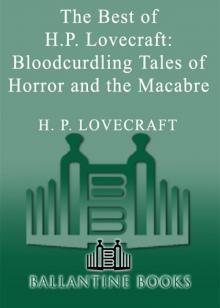 The Best of H.P. Lovecraft
The Best of H.P. Lovecraft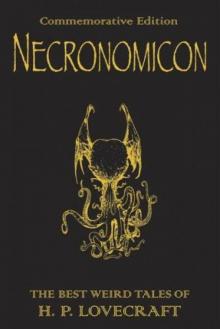 The Definitive H.P. Lovecraft: 67 Tales Of Horror In One Volume
The Definitive H.P. Lovecraft: 67 Tales Of Horror In One Volume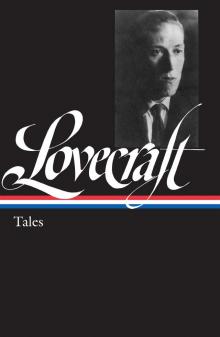 The Complete Works of H.P. Lovecraft
The Complete Works of H.P. Lovecraft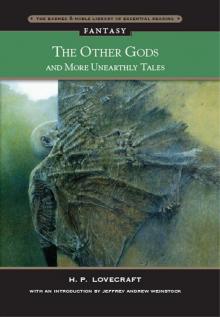 Other Gods and More Unearthly Tales
Other Gods and More Unearthly Tales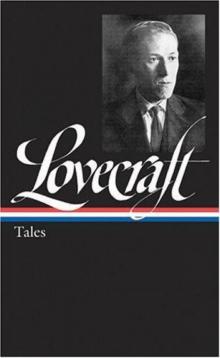 Lovecraft's Fiction Volume I, 1905-1925
Lovecraft's Fiction Volume I, 1905-1925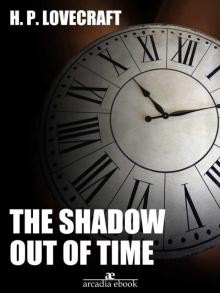 The Shadow Out of Time
The Shadow Out of Time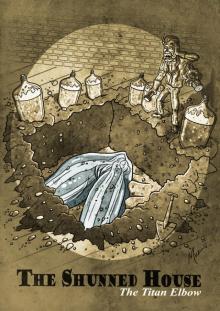 The Shunned House
The Shunned House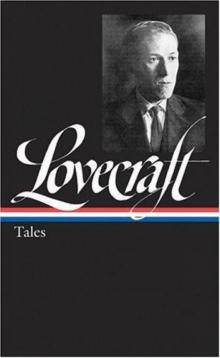 Lovecraft's Fiction Volume II, 1926-1928
Lovecraft's Fiction Volume II, 1926-1928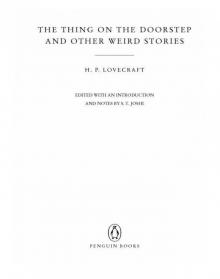 The Thing on the Doorstep and Other Weird Stories
The Thing on the Doorstep and Other Weird Stories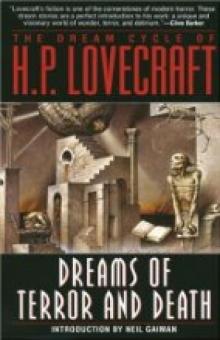 Dream Cycle of H. P. Lovecraft: Dreams of Terror and Death
Dream Cycle of H. P. Lovecraft: Dreams of Terror and Death Great Tales of Horror
Great Tales of Horror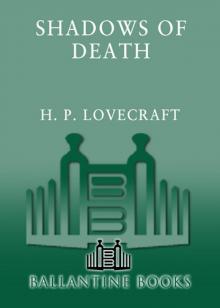 Shadows of Death
Shadows of Death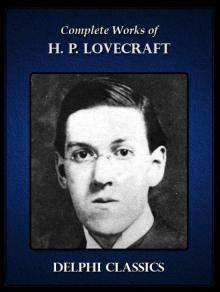 Delphi Complete Works of H. P. Lovecraft (Illustrated)
Delphi Complete Works of H. P. Lovecraft (Illustrated)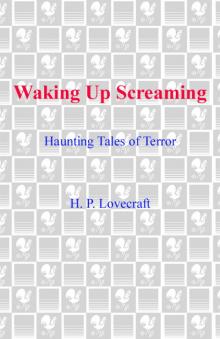 Waking Up Screaming: Haunting Tales of Terror
Waking Up Screaming: Haunting Tales of Terror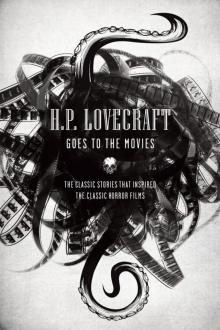 H.P. Lovecraft Goes to the Movies
H.P. Lovecraft Goes to the Movies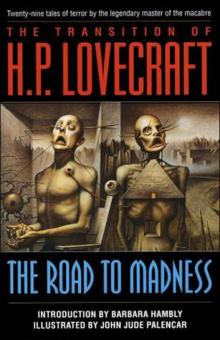 The Road to Madness
The Road to Madness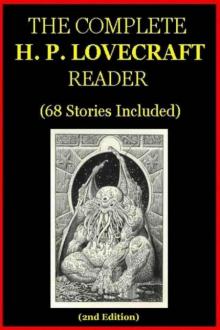 The Complete H.P. Lovecraft Reader (68 Stories)
The Complete H.P. Lovecraft Reader (68 Stories)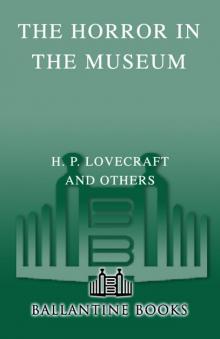 The Horror in the Museum
The Horror in the Museum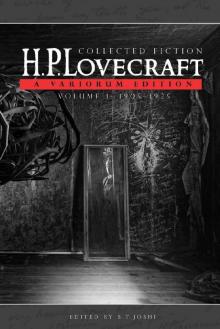 Collected Fiction Volume 1 (1905-1925): A Variorum Edition
Collected Fiction Volume 1 (1905-1925): A Variorum Edition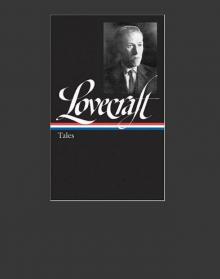 Lovecrafts_Fiction, vol.I_1905-1925
Lovecrafts_Fiction, vol.I_1905-1925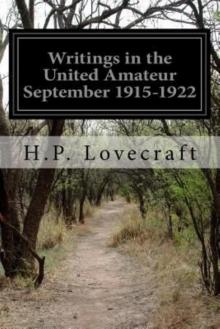 Writings in the United Amateur, 1915-1922
Writings in the United Amateur, 1915-1922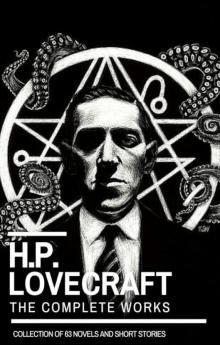 H.P. Lovecraft: The Complete Works
H.P. Lovecraft: The Complete Works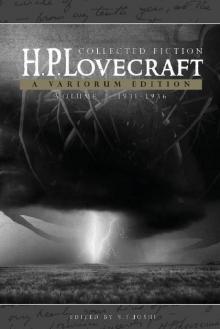 Collected Fiction Volume 3 (1931-1936): A Variorum Edition
Collected Fiction Volume 3 (1931-1936): A Variorum Edition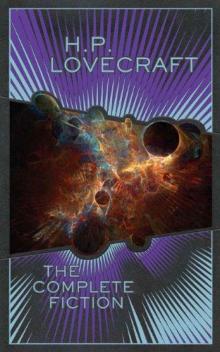 H.P. Lovecraft: The Complete Fiction
H.P. Lovecraft: The Complete Fiction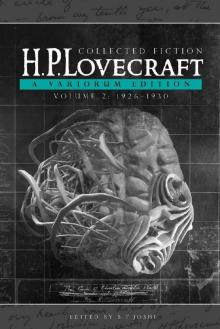 Collected Fiction Volume 2 (1926-1930): A Variorum Edition
Collected Fiction Volume 2 (1926-1930): A Variorum Edition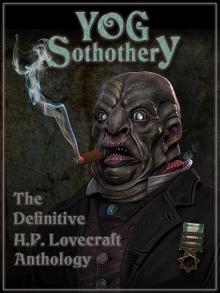 Yog Sothothery - The Definitive H.P. Lovecraft Anthology
Yog Sothothery - The Definitive H.P. Lovecraft Anthology The Complete H.P. Lovecraft Collection (Xist Classics)
The Complete H.P. Lovecraft Collection (Xist Classics)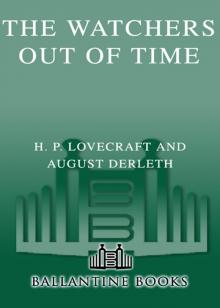 The Watchers Out of Time
The Watchers Out of Time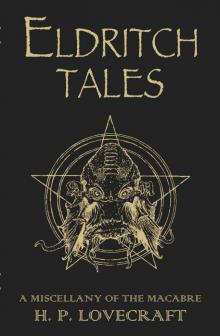 Eldritch Tales
Eldritch Tales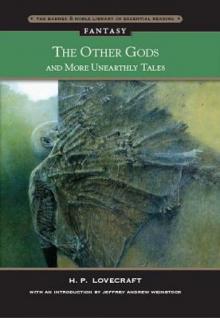 The Other Gods And More Unearthly Tales
The Other Gods And More Unearthly Tales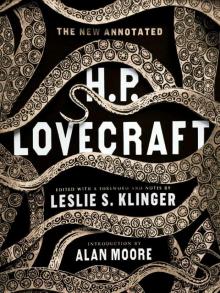 The New Annotated H. P. Lovecraft
The New Annotated H. P. Lovecraft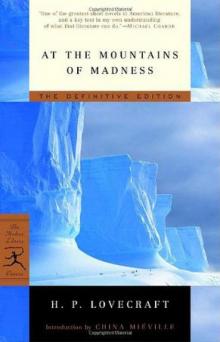 At the mountains of madness
At the mountains of madness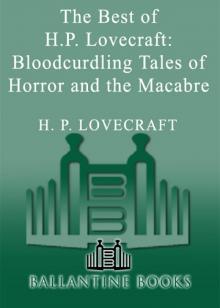 Bloodcurdling Tales of Horror and the Macabre
Bloodcurdling Tales of Horror and the Macabre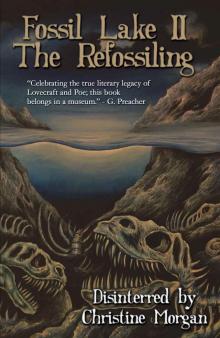 Fossil Lake II: The Refossiling
Fossil Lake II: The Refossiling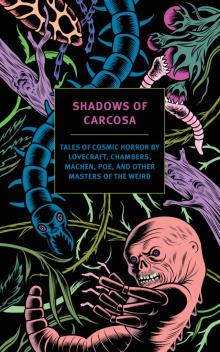 Shadows of Carcosa: Tales of Cosmic Horror by Lovecraft, Chambers, Machen, Poe, and Other Masters of the Weird
Shadows of Carcosa: Tales of Cosmic Horror by Lovecraft, Chambers, Machen, Poe, and Other Masters of the Weird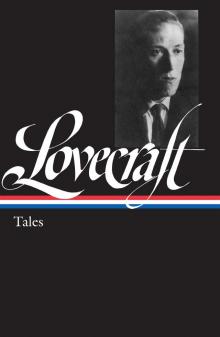 H. P. Lovecraft
H. P. Lovecraft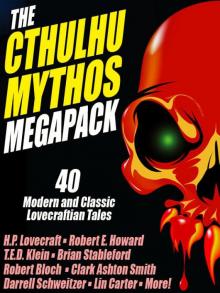 The Cthulhu Mythos Megapack
The Cthulhu Mythos Megapack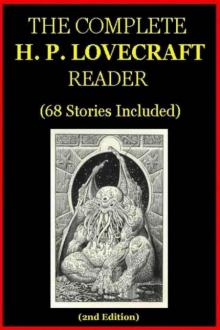 The Complete H. P. Lovecraft Reader (2nd Edition)
The Complete H. P. Lovecraft Reader (2nd Edition)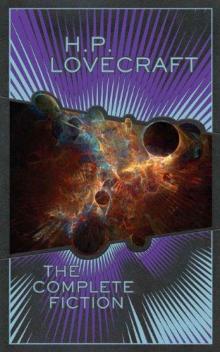 The Complete Fiction
The Complete Fiction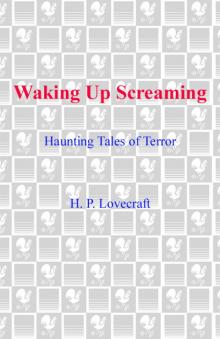 Waking Up Screaming
Waking Up Screaming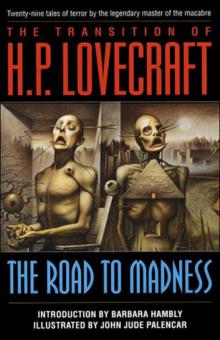 Transition of H. P. Lovecraft
Transition of H. P. Lovecraft![[1935] The Shadow Out of Time Read online](http://i1.bookreadfree.com/i2/04/12/1935_the_shadow_out_of_time_preview.jpg) [1935] The Shadow Out of Time
[1935] The Shadow Out of Time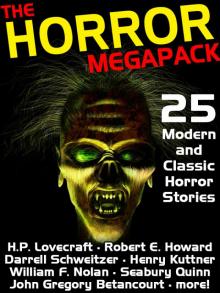 The Horror Megapack
The Horror Megapack